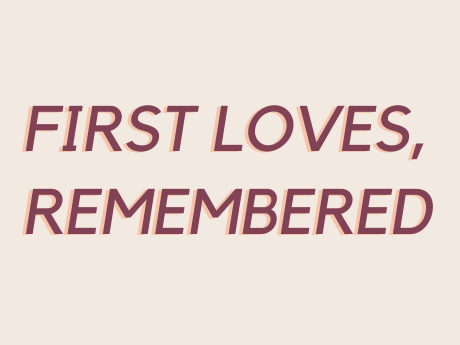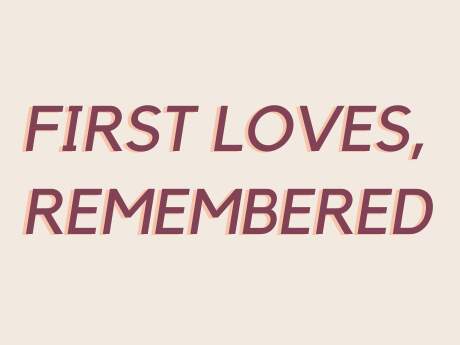First Loves, Remembered
First Loves, Remembered: Meghan O’Rourke on Adrienne Rich

The Burning of Paper Instead of Children
I was in danger of verbalizing my moral impulses out of existence.
—Fr. Daniel Berrigan, on trial in Baltimore
1.
My neighbor, a scientist and art-collector, telephones me in a state of violent emotion. He tells me that my son and his, aged eleven and twelve, have on the last day of school burned a mathematics text-book in the backyard. He has forbidden my son to come to his house for a week, and has forbidden his own son to leave the house during that time. "The burning of a book," he says, "arouses terrible sensations in me, memories of Hitler; there are few things that upset me so much as the idea of burning a book."
Back there: the library, walled
with green Britannicas
Looking again
in Dürer's Complete Works
for MELENCOLIA, the baffled woman
the crocodiles in Herodotus
the Book of the Dead
the Trial of Jeanne d'Arc, so blue
I think, It is her color
and they take the book away
because I dream of her too often
love and fear in a house
knowledge of the oppressor
I know it hurts to burn
2.
To imagine a time of silence
or few words
a time of chemistry and music
the hollows above your buttocks
traced by my hand
or, hair is like flesh, you said
an age of long silence
relief
from this tongue this slab of limestone
or reinforced concrete
fanatics and traders
dumped on this coast wildgreen clayred
that breathed once
in signals of smoke
sweep of the wind
knowledge of the oppressor
this is the oppressor's language
yet I need it to talk to you
3.
"People suffer highly in poverty and it takes dignity and intelligence to overcome this suffering. Some of the suffering are: a child did not had dinner last night: a child steal because he did not have money to buy it: to hear a mother say she do not have money to buy food for her children and to see a child without cloth it will make tears in your eyes."
(the fracture of order
the repair of speech
to overcome this suffering)
4.
We lie under the sheet
after making love, speaking
of loneliness
relieved in a book
relived in a book
so on that page
the clot and fissure
of it appears
words of a man
in pain
a naked word
entering the clot
a hand grasping
through bars:
deliverance
What happens between us
has happened for centuries
we know it from literature
still it happens
sexual jealousy
outflung hand
beating bed
dryness of mouth
after panting
there are books that describe all this
and they are useless
You walk into the woods behind a house
there in that country
you find a temple
built eighteen hundred years ago
you enter without knowing
what it is you enter
so it is with us
no one knows what may happen
though the books tell everything
burn the texts said Artaud
5.
I am composing on the typewriter late at night, thinking of today. How well we all spoke. A language is a map of our failures. Frederick Douglass wrote an English purer than Milton's. People suffer highly in poverty. There are methods but we do not use them. Joan, who could not read, spoke some peasant form of French. Some of the suffering are: it is hard to tell the truth; this is America; I cannot touch you now. In America we have only the present tense. I am in danger. You are in danger. The burning of a book arouses no sensation in me. I know it hurts to burn. There are flames of napalm in Catonsville, Maryland. I know it hurts to burn. The typewriter is overheated, my mouth is burning. I cannot touch you and this is the oppressor's language.
Copyright © 2016 by the Adrienne Rich Literary Trust. Copyright © 1989 by Adrienne Rich, from Collected Poems: 1950-2012 by Adrienne Rich. Used by permission of W. W. Norton & Company, Inc.
Twenty years ago, the Poetry Society published a series called First Loves in which we asked distinguished poets, including W.S. Merwin, Ntozake Shange, and Robert Creeley, to reflect on the poems that first captured their imaginations. The series eventually became a book, edited by Carmela Ciuraru, titled First Loves: Poets Introduce the Essential Poems that Captivated and Inspired Them. Here, we revisit that question with a new generation of poets, revealing how poetic influences both endure and change.
Meghan O’Rourke on Adrienne Rich’s “The Burning of Paper Instead of Children”
When I was a senior in high school, I was lucky enough to take a writing seminar. At the time, I thought of myself—in the grandiose yet insecure way a teenager does—as a would-be fiction writer; I had read very little poetry. One day, the teacher, a poet herself, gave us a poetry anthology and asked us to look through it, find something we liked, and respond to it by writing a poem. As I read through the anthology that night in my room, I stumbled on Adrienne Rich’s “The Burning of Paper Instead of Children.” The title stopped me in my tracks: it was at once violent and knowing, and it knew something I didn’t, but it knew it in language that did something to my limbic system, making my neck go cold.
I read the poem over and over, shaken into a reckoning with it: with the way the poem invoked the Holocaust and its aftermath, startled to attention by the poem’s invocation of the way that political pressure can crumple individuals who come under it.
It did not escape me that this was a poem that was saying that books mattered; books mattered so much that a couple of kids ignorantly burning their math textbook for fun was still a serious wrong in the eyes of the poet. The teenager in me responded to that, because books were the way I was building a world that made sense to me. It was books I clung to amidst the depression and anxiety of being a 16-year-old who didn’t know who she was, or what made sense. Reading Rich that night—it’s not an exaggeration to say—I now suddenly knew that I wanted to write poems, because the way that Rich was able to move between a discursive and lyrical mode was a revelation to me. It echoed my own sense of how I made meaning: through argument, but also through image and even irresolution. I didn’t know poems could do this—didn’t know a poem could move from lineated lines to prose, quoting from other texts, making references I didn’t fully understand and yet I felt. The experimental space of the poem solidified for me an early, delighted sense that poems are a space where language searches to get beyond its own calcified habits.


